39 F. high in the Twin Cities Friday.
36 F. average high on March 6.
26 F. high on March 6, 2014.
2" snow on the ground at KMSP.
March 6, 1987:
Heat wave across Minnesota brings earliest 70 degree readings to the
Twin Cities. The record high for the day was 73, breaking the old record
by 13 degrees. Shorts were common and persons were turning over dirt in
their gardens for planting.
March 6, 1950:
Snow and ice storm across Minnesota. The heaviest ice was in northwest
and west central Minnesota. The heaviest ice was found in Norman County
near Twin Valley. 52 electrical poles were down in this area with ice up
to 1.5 inches on wires. All communication lines out of Fargo were out
with wind gusts estimated up to 60 mph. In order to provide temporary
long distance service to and from isolated communities short wave radio
equipment was used to bridge the gaps. In Pipestone, several plate glass
windows were blown in. During the snowstorm that followed later in the
day, Northwest Airline plane crashed into three homes in Minneapolis
killing all 13 on the plane and two on the ground. The left wing of the
plane struck a flagpole at Ft. Snelling National Cemetery as it circled
to land. Source: Twin Cities NWS.
Time to Exhale
The
days of face-clenching cold are behind us now. No more subzero
soliloquies. Fewer fender-bending headlines of ice, pain and woe. How
can a temperature be "negative" anyway?
The atmosphere is shifting gears rather dramatically; 50s next week will feel like a cheap vacation.
And
it's baaack. El Nino! NOAA just made it official: the equatorial
Pacific is running a low-grade fever and some of that warmth will flavor
our weather throughout 2015. I suspect we'll see more heat (and more
severe thunderstorms) than recent summers; more drowsy neighbors
complaining about the dew point.
Just a hunch.
Soil moisture
and SWE (snow water equivalent) are low for March. And our perpetual
dry rut may continue into spring. El Nino tends to keep Minnesota drier
into May. I'm not yet convinced of a debilitating drought spilling over
into summer, but if I had to go out on a limb I'd predict greater odds
of a hot/dry summer than a cool/wet one. Place your bets.
Precious
little snow on the ground means a statisically lower threat of spring
flooding along Minnesota's rivers and streams. I still don't see a
legitimate storm looking out 2 weeks.
ECMWF guidance hints at a few 60s by mid-March!
Going....Going....Mostly Gone By Next Week.
NOAA guidance shows a couple inches of snow on the ground for most of
southern and central Minnesota; more far north with over a foot for the
Minnesota Arrowhead. It's still considerably less than we experienced in
March of 2014 or 2013, and at the rate we're going much of central and
southern Minnesota will be largely snow-free by the middle of next week.
Lower Risk of Spring River Flooding.
The map above shows SWE or snow water equivalent, as derived by NOAA
based on how much snow is on the ground and the estimated water content
of that snow pack. There's a couple inches of water locked up in the
snow up north, but precious little across the Red River Valley, which
has been most prone to river flooding in recent years. Unless we get a
series of large snow or rain storms in the next 3-4 weeks we may just
dodge a bullet this year.
Overestimating The Warmth Next Week? ECMWF
and Norwegian model guidance (consistently) shows highs near 60F by the
middle of next week, which assumes strong southerly winds, some sun,
and little or no snow on the ground within 3-4 days. All of which seems
like a reasonable assumption, but I'm still not convinced it will get
this warm in the MSP metro area. Southwest Minnesota? Absolutely. Either
way we'll see 50s, and it will feel pretty good out there next week,
more early April than mid-March. Graphic: Weatherspark.
A February To Forget.
Yes, we got the cold last month, but not that much snow. And for the
record, meteorological winter was .5F colder than average, a numbing
February making up for relative warmth in December and January. Here's
an excerpt of a recap from Dr. Mark Seeley at
Minnesota WeatherTalk: "..
Mean
monthly temperatures for February were cold for all locations in
Minnesota, ranging from 8 to 13F below normal. Extremes for the month
were 49F at Pipestone on the 7th to a low of -43F at Cotton on the
20th. Minnesota reported the coldest temperature in the nation 8 times
during the month of February and overall based on the statewide average
temperature February of 2015 was the 14th coldest since 1895, but not as
cold as February of last year (which was 9th coldest since 1895)..."
Misplaced Tournament Storm.
A few inches fell in Dallas, with as much as 23" near Elizabethtown,
Kentucky, a staggering amount of snow that far south in early March.
Central Region Headquarters of NOAA has snowfall totals from this system.
Dallas Snowman.
Meghan Gehrke lives in Ft. Worth, Texas. She is a Minnesota native, so
she's somewhat accustomed to the snow, but her neighbors are probably
having an out of body experience! Thanks to Media Logic meteorologist
Todd Nelson for passing these along. Good grief.
MSP: 27.2 Inches And Counting.
The last snow since the winter of 2011-2012, when 22.3" of snow fell.
If you have friends in Boston, New York City, Chicago or even Lexington,
Kentucky you may want to check in to make sure they're doing OK.
After Much Ado, El Nino Officially Declared.
It probably won't be a monster El Nino similar to 1998, but it may help
to tip 2015 over as the warmest year on record (again). Here's an
excerpt from
Climate Central: "
Just when everyone had pretty much written it off,
the El Niño event that has been nearly a year in the offing finally
emerged in February and could last through the spring and summer, the
National Oceanic and Atmospheric Administration announced Thursday.
This isn’t the blockbuster, 1998 repeat El Niño many anticipated when
the first hints of an impending event emerged about a year ago. This El
Niño has just crept across the official threshold, so it won’t be a
strong event..."
Animation credit: "
Animation of subsurface temperature anomalies in the tropical Pacific Ocean." Credit: NOAA.
Atmosphere "Has Finally Woken Up" As El Nino Gets Underway In The Pacific.
Carbon Brief has more details on the fledgling El Nino event and possible implications: "..
Now, the atmosphere seems to have sprung into action, Prof Mat Collins, El Niño expert at the University of Exeter and joint Met Office Chair in climate change, tells Carbon Brief.
"It seems like the atmosphere has finally woken-up to the fact that the
sea surface temperatures have been warm in the equatorial Pacific." The fledging El Niño classifies only as a weak event, with most models predicting a slow increase over the coming months. A blog by NOAA El Niño scientist Dr Emily Becker accompanying yesterday's announcement, explains why this event is weaker than past ones..."
Image credit: "
Average
sea surface temperature in the tropical Pacific for the week of 25th
Feb. Anomalies are relative to 1981-2010 weekly average." Source:
NOAA Climate Prediction Center.
NOAA: El Nino is "Too Little Too Late" For California Drought.
Some El Nino's bring excessive rainfall events to California - this
winter's low-grade, simmering warmth wasn't one of them, unfortunately. The Los Angeles Times has the story - here's an excerpt: "...A
strong El Niño often brings above-average rainfall across Mexico and
the southern U.S., extending into parts of the Midwest and into New
England, according to NOAA. Although there were some localized
precipitation anomalies during the early winter -- the Northeast's
snowstorms among them -- they did not fit the pattern of an El Niño
effect, according to the agency. Japanese climate officials declared a
weak El Niño in mid-December."
File photo credit above: "
In this Nov. 17, 2014 file photo, boat slips sit on the dry lake bed at Brown's Marina at Folsom Lake, near Folsom Calif." AP Photo/Rich Pedroncelli, File.
India, Bangladesh, China Most At Risk From River Floods.
Reuters has highlights of a recent study; here's the intro: "
India,
Bangladesh and China are most at risk from river floods, with an
increasing number of people threatened because of climate change and
economic growth in low-lying regions, a study said on Thursday.
The U.S.-based World Resources Institute think-tank and four Dutch
research groups estimated that some 21 million people worldwide were
affected by river flooding in a typical year. "That number could increase to 54 million in 2030 due to climate change and socio-economic development," their report said..."
* The Aqueduct Global Flood Analyzer from WRI, World Resources Institute, is
here.
People Are Finally Worrying About Online Privacy - And Tech Firms Are Already Cashing In.
Quartz has an interesting story. As I keep telling anyone who listen: if the service is "free"
you are the product. Here's an excerpt: "...
The
lure of customer data and opportunities to exploit it is a strong one.
Indeed, invading privacy has been baked into the very business model of
the web in our present era. For a
company to receive high valuations and massive funding rounds, it needs
to show a large and growing number of users. Once it has those users,
it needs to start making money. The default option—since it would be
difficult to convince several hundred million people to pay for social
networking, for example—is to advertise to them..."

Samsung Dream Doghouse Envisions Luxury Digs For Man's Best Friend. Uh huh. Doesn't Samsung make TV's and phones? Am I missing something here? Obviously. Here's an excerpt from
Gizmag: "
The cutting edge of pet architecture shouldn't just be for cats,
so it's only right that man's best friend enjoys some plush digs too.
With this in mind, Samsung has unveiled a concept kennel that features
luxury amenities like a treadmill, hydrotherapy pool, and an automated
feeder. It's a dog's life, eh?..."
TODAY: Some sun, nice to be "average". Winds: NW 15. High: 39
SATURDAY NIGHT: Clouds, a few snow flurries or snow showers late. Low: 26
SUNDAY: Patchy clouds, few flakes? High: 41
MONDAY: Intervals of sun, feels like spring. Wake-up: 25. HIgh: 49
TUESDAY: Blue sky, chirping birds. Nice. Wake-up: 28. High: 53
WEDNESDAY: Mix of clouds and sun. Most of the snow is gone. Wake-up: 31. High: 54
THURSDAY: Grilling weather. Touch of April. Wake-up: 34. High: 57
FRIDAY: Still quiet, milder than average. Wake-up: 35. High: 55
Climate Stories...
CO2 Levels for February Eclipsed Prehistoric Highs. Here's a dubious benchmark, as reported by
Scientific American: "
February is the first month since before months had names to boast carbon dioxide concentrations at 400 parts per million. Such CO2 concentrations in the atmosphere have likely not been seen since at least the end of the Oligocene
23 million years ago, an 11-million-year-long epoch of gradual climate
cooling that most likely saw CO2 concentrations drop from more than
1,000 ppm. Those of us alive today breathe air never tasted by any of
our ancestors in the entire Homo genus..."
More Cold and Snow Thanks To Global Warming? Counterpunch
has an interesting article that focuses on some of the wild swings in
weather from a (drunken) jet stream; the eastern USA one of the few
spots in the northern hemisphere experiencing colder, snowier weather in
recent winters, and rapid warming of the Arctic may be a factor. Here's
an excerpt: "...
Curse you, Arctic oscillation! New
York City just suffered through its coldest February since 1934, and its
second-coldest month (any month) since then. Boston’s snow has been of
historic proportions. And cities from Toronto and Buffalo to Bangor, Maine,
recorded the coldest month in their recorded histories. On the other
side of the continent, cities from Salt Lake City, Utah, to San
Francisco and Seattle recorded their warmest winter months in history..."
GFS jet stream forecast above courtesy of
Climate Reanalyzer.
Global Warming, Climate Change And It's Impact on Weather - Science or Myth? Meteorologist Mike Nelson at 7News in Denver has a long, thoughtful (respectful) article at
TheDenverChannel focusing on the symptoms of climate volatility showing up in day to day weather; here's a clip: "...
I
address this topic at some peril! In many ways, the job description
for the TV "Weathercaster" is to simply be the nice friendly person that
tells you what the high was, how much rain will fall and what to expect
next weekend. I have found that, especially in recent years, broaching
the topic of GLOBAL WARMING can stir up deep emotions within viewers and
can bring some rather rough responses via e-mail and Facebook. Over the
course of time, I have been called many different things while talking
and writing about this subject. From courageous to foolish, to "the
Pied Piper of Anti-Science"!..."
Arctic Ice Could Set An Ominous New Record This Year. Chris Mooney has details at
The Washington Post; here's a clip that caught my eye: "...
First,
the agency notes that last month saw the third-lowest ice extent ever
recorded for February, based on satellite records going back to 1979.
Indeed, Arctic sea ice extent in February just keeps ticking lower and
lower. But that’s not all. NSIDC also notes that there could be a new
record coming. “If the current
pattern of below-average extent continues, Arctic sea ice extent may set
a new lowest winter maximum,” wrote the agency..." (Image: National Snow and Ice Data Center).
Global Warming or Climate Chaos: What's In A Name?
I still think "climate volatility" is the right way to think of what's
happening, the swings in temperature and moisture are getting bigger;
the jet stream impacted by a very rapidly warming Arctic. Here's an
excerpt of a story from a former NASA researcher at
Huffington Post: "...
Which brings us back to global warming.
Does the term help or hinder? Well, both. Yes, the climate is warming,
but the term trivializes what is vastly more complex. "Climate change"
is a more descriptive, but ho-hum. "Climate disruption," currently in
vogue, is better. "Climate destabilization" is most accurate, but geeky.
And "climate chaos" is where we're headed. For the moment, let's run
with climate destabilization..."
The Oceans May Be Lulling Us Into A False Sense of Climate Security.
The oceans have a very significant (but not infinite) capacity to
absorb extra heat from the burning of fossil fuels, but at some point
all that additional warmth may come back to the surface and amplifying
atmospheric temperatures. Here's a clip from a story at
The Guardian: "
A paper
published last week in Science casts more light on oceans and how they
may have contributed to a false sense of security about what we face in
the future. The paper, coauthored by Byron Steinman, Michael Mann, and Sonya Miller,
approached the problem in a new way that connected real-world
observations with state-of-the-art climate models. What the authors find
casts severe doubt on other work which had oversold the role of natural
climate’s ability to halt global warming for the next 15 years.
Instead, by correcting others’ errors, the new paper shows that things
may be worse than we thought..."
"Merchants of Doubt". Meet The Sleazy Spin Doctors Who Will Stop At Nothing To Obscure The Truth. Here's a documentary just now being released that you may want to add to your list.
Salon has more details: "...
Kenner, best known for his film adaptation of “Food, Inc.,” is out with a new documentary, “Merchants of Doubt,”
in which he introduces us to a “professional class of deceivers”: P.R.
whizzes who learned their very particular set of skills defending Big
Tobacco. The connection, once illuminated, makes perfect sense. As
tobacco exec-turned-lobbyist Peter Sparber puts
it, ”If you can sell tobacco, you can sell anything.” And boy, do they:
junk food, flame retardants in furniture, pharmaceuticals, carbon
pollution. The film expands on the book by
science historians Naomi Oreskes and Erik Conway to show how these
shady few, motivated by a combination of politics and big payouts, work
tirelessly to convince the American public to act against their own
self-interest..."
* The New York Times has a movie review
here. The YouTube trailer is
here.
*
NPR talks to the director of the documentary, Robert Kenner.
How To Win Friends and Bamboozle People About Climate Change.
Scientific American has their own take on "Merchants of Doubt"; here's an excerpt of a review: "...
Kenner
employs Scientific American's own arch-skeptic Michael Shermer to show
how this denial is not skepticism, but cynicism. Shermer details his own
journey from skeptic to the ranks of the convinced,
swayed by data, something Singer, Seitz and their colleagues seem
immune to—perhaps helped along by the kind of funding that the
Harvard–Smithsonian Center for Astrophysics' Willie Soon has most recently enjoyed.
In addition to skeptical "scientists," another useful ally has been
think tanks that can sow doubt under the guise of impartiality, such as
the Global Climate Coalition that fought action on climate change from 1989 to 2002 or, more recently, the Heartland Institute..."
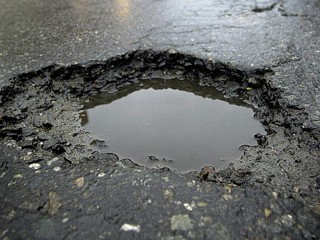
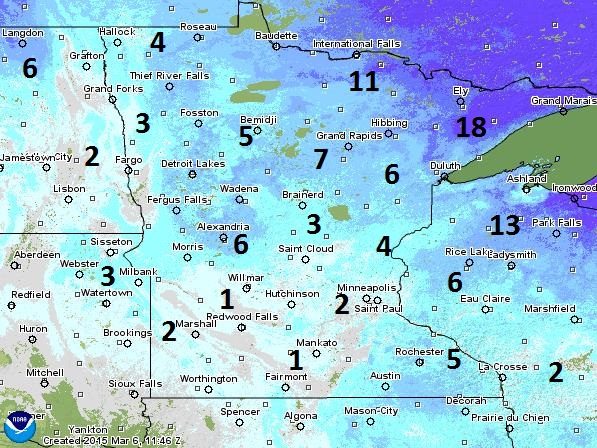
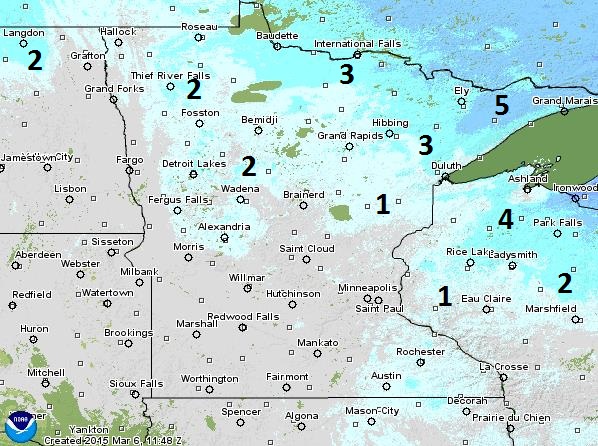
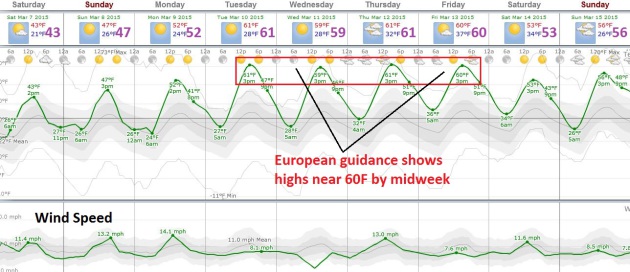
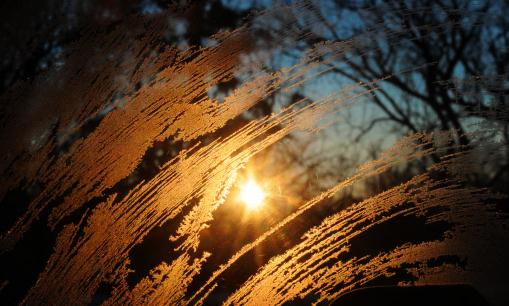
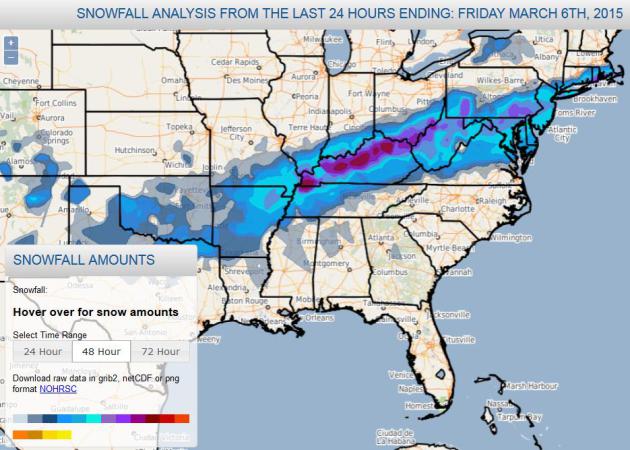
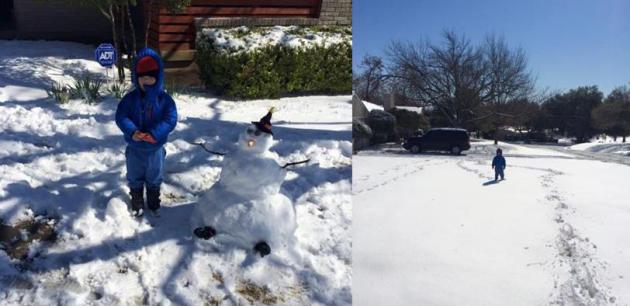
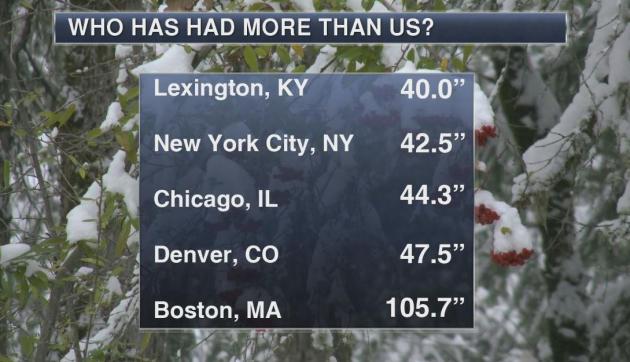
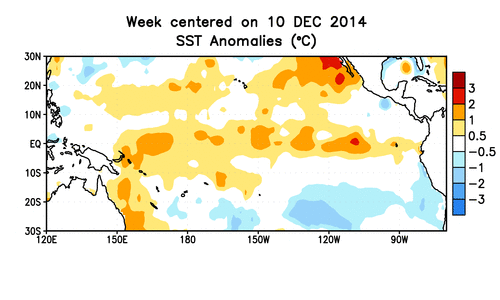
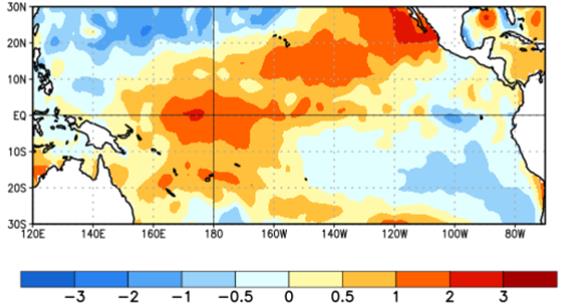
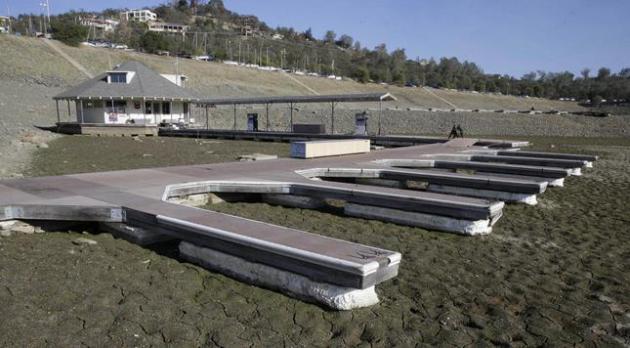
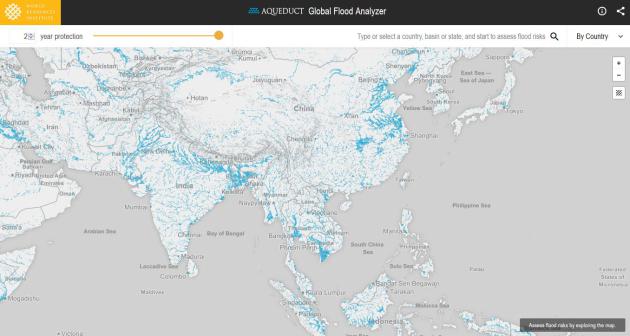



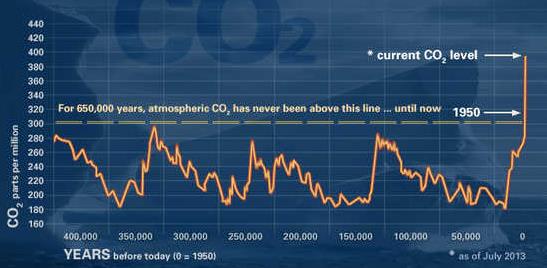
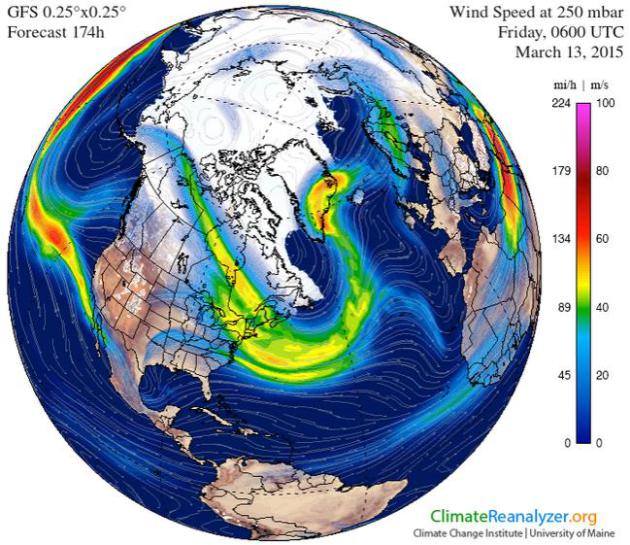

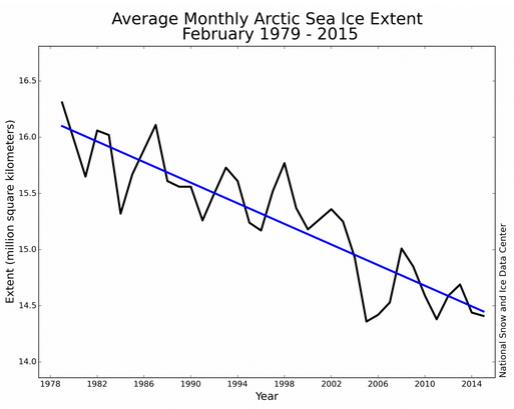
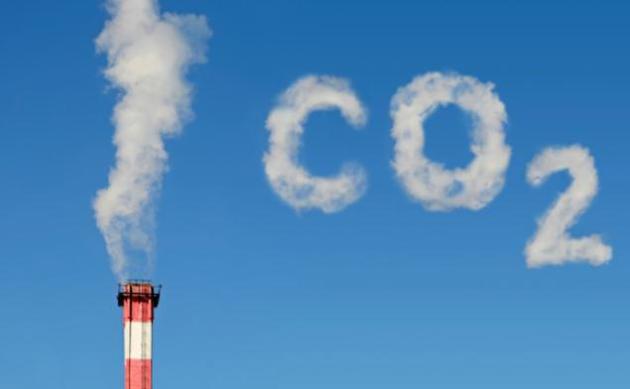
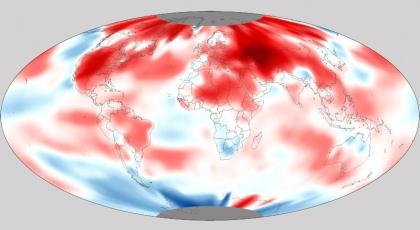
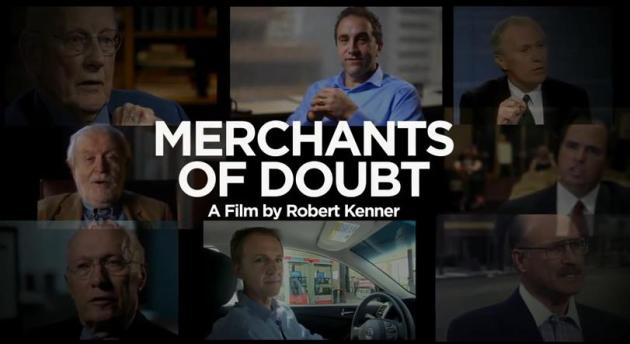

No comments:
Post a Comment